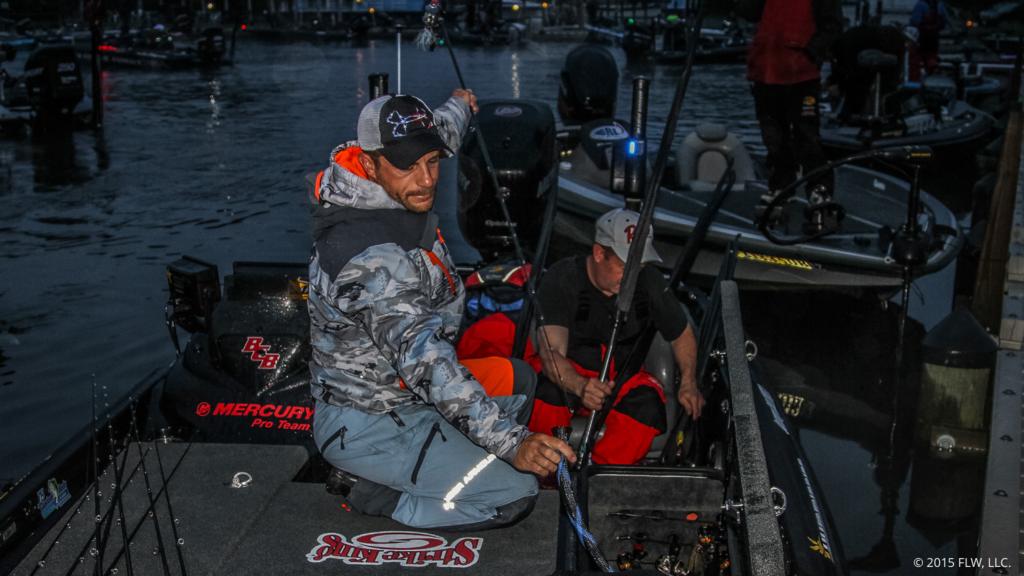Fall Fishing Advice
It’s about more than just finding baitfish

The cool nights have moved in around the Mid-Atlantic region. This means the water temps are finally dropping, the baitfish are heading to the shallow creeks and the largemouths are rushing in after them. The feedbag is on, and we are ready to capitalize on this opportunity to put some serious numbers in the boat.
Well, that’s what we all want to happen. The fall can be hit-and-miss at times, and the key to finding fish in the fall is finding the bait. Who hasn’t heard that line, right? Well, there’s more to it, so follow along and, hopefully, I can give you more info than simply “go find the bait.”
During fall, bass have one thing on their mind, and that is to EAT. They are looking to gorge themselves before the shivering winter days are in full swing. So the saying does hold some truth. Bass are with the bait, but it’s not as easy as that. Shad are generally moving to the shallows in main-lake pockets and into the creeks, but there’s a lot of other forage that bass eat as well. Bluegills and frogs are still in the pads and topped-out grass areas. Crayfish are still in rocky areas all over the lake, and then you have the ever-roaming white bass and blueback herring. Bass can really be anywhere during the fall.
To start, I always think about where the bass came from and where they are going. Then, I want to intercept them along that route somewhere. During this time, they are moving from the deeper summer locations and heading to the shallows to ambush bait. With that in mind, I like to start shallow in main-lake pockets with a Strike King Swinging Sugar Buzz. This lets me cover water fast. All I am doing is trying to locate the fish and start developing a pattern. Even if they miss the bait they might show themselves and give you clues to the puzzle. Look for main-lake pockets that have wind blowing into them. The reason for this is the water might be cooler, and the plankton is blown in there, which brings the shad, which brings the bass.
From main-lake pockets, I like to move toward the creeks. I prefer the shorter creeks first as the fish have less area to travel, and these areas can be broken down faster. A bonus to those smaller creeks is finding one with fresh water running into the back of it. That equals cooler water and a higher concentration of oxygen.
When I get to the larger creeks, I treat them like their own lake and fish a variety of cover. Boat docks are always great places to find fish, along with the flats and any shallow area that is close to the creek channel.
If I haven’t found the fish by this point, I will start looking at the creek-channel bends. Then I will work my way back out toward the main lake and those summer locations.
One other factor to consider is matted grass. Bass will hold in there through the summer and well into the late fall. Don’t let some dead grass scare you off, either. Yes, dying grass absorbs some oxygen, but as the grass breaks down, various microorganisms move in to feed on the decaying vegetation. This process draws shad and other smaller fish in, which in turn lure in the bass we are looking for. A few patches of green grass mixed in or some wind to stir the water will provide the needed oxygen to make this a productive area.
So, as you can tell, the bass can be anywhere during the fall. Have an open mind, pay attention to the environment, put your head down and move around until you find them.
Good luck!